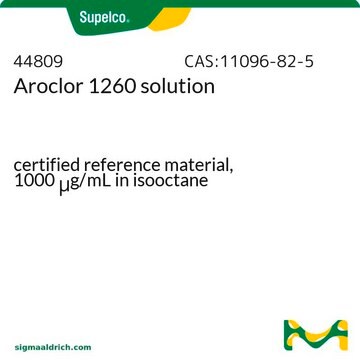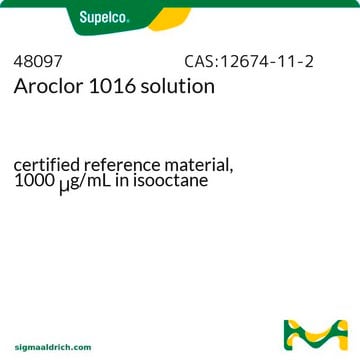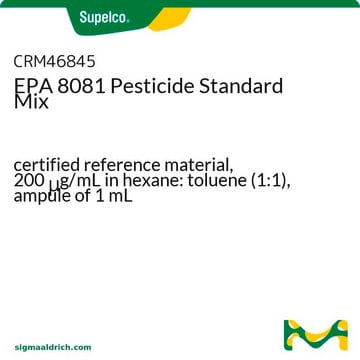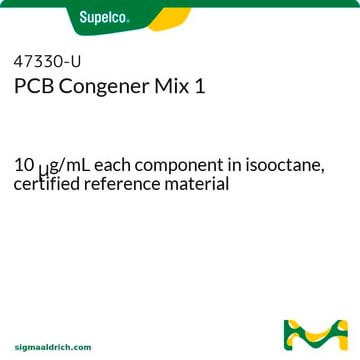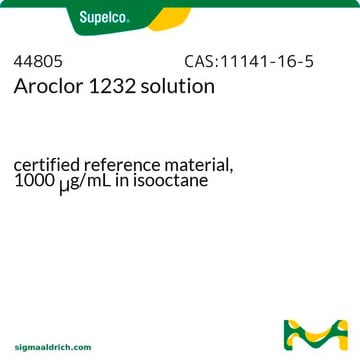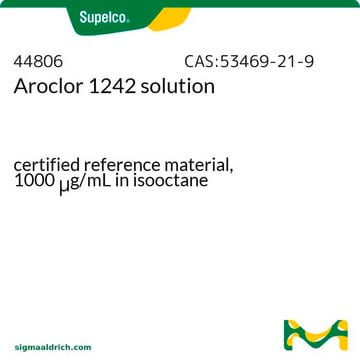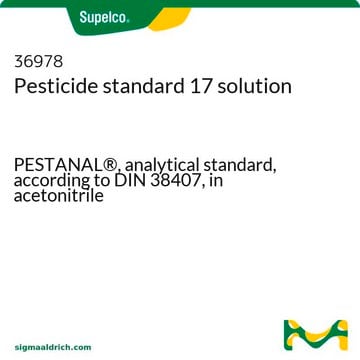48704
Aroclor 1260 solution
certified reference material, 200 μg/mL in methanol
About This Item
Prodotti consigliati
Grado
certified reference material
TraceCERT®
agenzia
EPA 505,508,8080,8082
MISA (Canada) Group 27
Nome Commerciale
TraceCERT®
CdA
current certificate can be downloaded
Caratteristiche
standard type calibration
Confezionamento
ampule of 1 mL
Concentrazione
200 μg/mL in methanol
tecniche
HPLC: suitable
gas chromatography (GC): suitable
applicazioni
environmental
Formato
single component solution
Temperatura di conservazione
2-30°C
InChI
1S/C12H4Cl6/c13-7-3-1-5(9(15)11(7)17)6-2-4-8(14)12(18)10(6)16/h1-4H
BTAGRXWGMYTPBY-UHFFFAOYSA-N
Cerchi prodotti simili? Visita Guida al confronto tra prodotti
Applicazioni
Altre note
Note legali
Avvertenze
Danger
Indicazioni di pericolo
Consigli di prudenza
Classi di pericolo
Acute Tox. 3 Dermal - Acute Tox. 3 Inhalation - Acute Tox. 3 Oral - Flam. Liq. 2 - STOT RE 2 - STOT SE 1
Codice della classe di stoccaggio
3 - Flammable liquids
Classe di pericolosità dell'acqua (WGK)
WGK 2
Punto d’infiammabilità (°F)
51.8 °F - closed cup
Punto d’infiammabilità (°C)
11 °C - closed cup
Certificati d'analisi (COA)
Cerca il Certificati d'analisi (COA) digitando il numero di lotto/batch corrispondente. I numeri di lotto o di batch sono stampati sull'etichetta dei prodotti dopo la parola ‘Lotto’ o ‘Batch’.
Possiedi già questo prodotto?
I documenti relativi ai prodotti acquistati recentemente sono disponibili nell’Archivio dei documenti.
Il team dei nostri ricercatori vanta grande esperienza in tutte le aree della ricerca quali Life Science, scienza dei materiali, sintesi chimica, cromatografia, discipline analitiche, ecc..
Contatta l'Assistenza Tecnica.